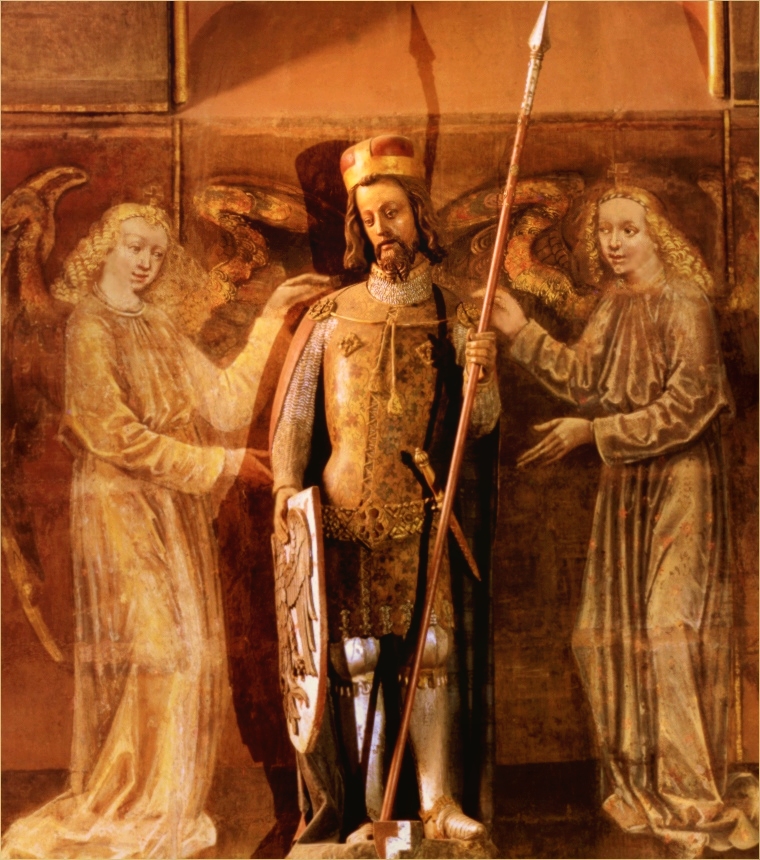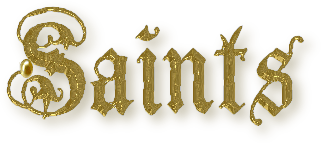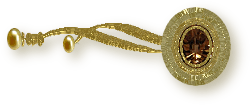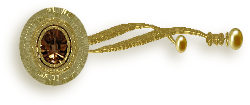 St. Wenceslaus HEINRICH PARLER 1353 St. Wenceslaus, King and Martyr September 28   WENCESLAS recalls to us the entrance into the Church of a warlike nation, the Czechs, the most indomitable of the Slavonic tribes, which had penetrated into the very midst of Germany. It is well known, with what bitterness and active energy this nation upholds its social claims, as though its struggle for existence in the early days of its history had made it proof against every trial. The faith of its apostles and Martyrs, the Roman faith, will be the safeguard, as it is the bond of union, of the countries subject to the crown of St. Wenceslas. Heresy, whether it be the native Hussite, or the 'reform' imported from Germany, can but lead the people to eternal ruin; may they never yield to the advances and seductions of schism! Wenceslas the Martyr, grandson of the holy Martyr Ludmilla, and great-uncle of the monk-bishop and Martyr Adalbert, invites his faithful subjects to follow him in the only path where they may find honour and security both for this world and for the next. The conversion of Bohemia dates from the latter part of the ninth century, when St. Methodius Baptized St. Ludmilla and her husband Borziwoi the first Christian duke of the line of Premislas. The pagan reaction, during which St. Wenceslas gained the palm of Martyrdom, was but shortlived. Wenceslaus, duke of Bohemia, was born of a Christian father, Wratislas, and a pagan mother, Drahomira. Brought up in piety by the holy woman Ludmilla his grandmother, he was adorned with every virtue and with the utmost care preserved his virginity unspotted throughout his life. His mother, having murdered Ludmilla, seized the reins of government; but her wicked life, and that of her younger son Boleslas excited the indignation of the nobles. These, wearied of a tyrannical and impious rule, threw off the yoke of both mother and son, and proclaimed Wenceslaus king at Prague. He ruled his kingdom rather by kindness than authority. He succoured orphans, widows, and all the poor with the greatest charity, sometimes even carrying wood on his shoulders, by night, to those in need of it. He frequently assisted at the funerals of poor persons, liberated captives, and often visited the prisoners during the night, assisting them with gifts and advice. It caused great sorrow to his tender heart to condemn even the guilty to death. He had the greatest reverence for priests; and with his own hands he would . . . prepare the wine to be used in the sacrifice of the Mass. At night he used to go the round of the churches barefoot, through ice and snow, while his bloodstained footprints warmed the ground. The Angels formed his bodyguard. In order to spare the lives of his soldiers, he undertook to fight in single combat with Radislas, duke of Gurima; but when the latter saw Angels arming Wenceslaus, and heard them forbidding him to strike, he was terrified and fell at the Saint's feet begging his forgiveness. On one occasion, when he had gone to Germany, the emperor, at his approach, saw two Angels adorning him with a golden cross whereupon, rising from his throne, he embraced the Saint, bestowed on him the regal insignia, and presented him with the arm of St. Vitus. Nevertheless, instigated by their mother, his wicked brother invited him to a banquet, and then, together with some accomplices, killed him as he was praying in the church, aware of the death that awaited him. His blood is still to be seen sprinkled on the walls. God avenged His Saint; the earth swallowed up the inhuman mother, and the murderers perished miserably in various ways. Thou didst win thy crown O holy Martyr, in the church of Saints Cosmos and Damian, whither their feast had attracted thee. [Christian de Scala, son of the fratricidc Boleslas the cruel, and nephew of the Saint; he became a monk, and wrote the lives of St. Wenceslaus and St. Ludmilla.] As thou didst honour them, we now in turn honour thee. We are also hailing the approach of that other solemnity, which thou didst greet with thy last words at the fratricidal banquet: 'In honour of the Archangel Michael let us drink this cup, and let us beseech him to lead our souls into the peace of eternal happiness.' [Ibid.] What a sublime pledge, when thou wast already grasping the chalice of blood! O Wenceslaus, fire us with that intrepid valour, which is ever humble and gentle, simple as God to Whom it tends, calm as the Angels on whom it relies. Succour the Church in these unfortunate times; the whole Church honours thee, she has a right to expect thy assistance. But especially cherish for her the nation of which thou art the honour; as long as it remains faithful to thy blessed memory, and looks to thy patronage in its earthly combats, its wandering from the truth will not be without return. Adapted from THE LITURGICAL YEAR, Vol. XIV by Dom Gueranger The Saint lived in the early 10th century.    HOME---------------PRAYERS AND DEVOTIONS-----------------LITANIES www.catholictradition.org/Saints/saints9-21.htm |